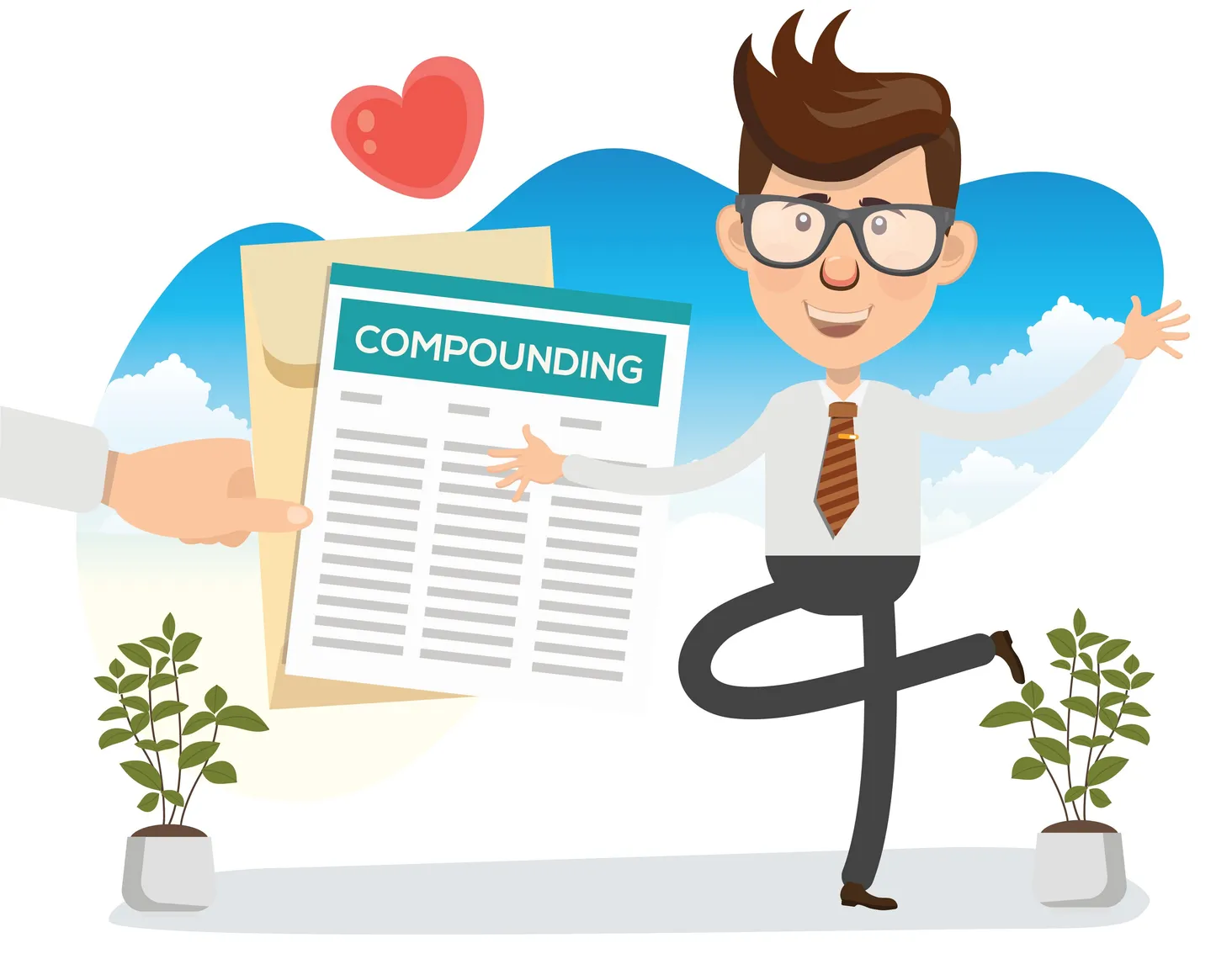What is compounding?

What is compounding? It is the process of adding interest to interest on the principal sum of a deposit. You can look at it as reinvesting interest rather than paying it out. Also known as compound interest, it’s one of the easiest ways to build savings.
Key takeaways
Compounding is the process of adding interest to interest on the principal sum, where earnings from each period are reinvested to generate additional returns and exponential growth over time.
The longer the investment period and the more frequently interest is calculated, the greater the impact of compounding, with monthly compounding growing faster than yearly compounding on the same account.
Compounding benefits savers through savings accounts, cash ISAs, and bank accounts, but works against borrowers by adding compound interest to debts like mortgages, personal loans, and credit cards.
In the stock market, investors can utilize compounding by reinvesting dividend payments into additional shares rather than taking them as income, helping portfolios grow faster than they otherwise would.
Compounding is accessible to all investment amounts from £100 to £100,000 and serves as one of the easiest ways to build savings and a key factor in wealth accumulation.
Key takeaways:
- Compounding is a financial concept that involves earning returns not only on the initial investment but also on the accumulated interest or gains over time.
- Compounding allows investments to grow exponentially as the earnings from each period are reinvested and generate additional returns.
- The longer the investment period, the more significant the impact of compounding becomes.
- Compounding is a key factor in wealth accumulation and can greatly enhance the growth of savings and investments.
Where have you heard about compounding?
Savings and cash ISAs are compounded when you leave money in a bank or building society account, so it's beneficial for savers. It's not so good if you're borrowing though as mortgages, personal loans and credit cards add compound interest to your debt.
What you need to know about compounding
Whether you have £100 or £100,000 to invest, you can take advantage of the magic of compounding.
The rate of compounding depends on how often the interest is calculated and paid. An account that pays interest on a monthly basis will grow faster than the same account calculating interest on a yearly basis.
The principle of compounding works in the stock market too. If you invest in stocks that pay dividends you can reinvest your dividend payments into shares of more stock rather than taking them as income. That way, those shares can grow too. The reinvestment can help your portfolio grow quicker than it otherwise would.
Find out more about compounding
Read our definition of compound interest to find out more about how 'interest on top of interest' works.